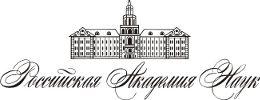
|
QUANTITATIVE APPROACHES TO VERSIFICATION Prague | 24-26 June 2019 | ☰ |
Monday 24 June
| 8.30–9.00 | Registration |
| 9.00–9.30 | Opening remarks |
| 9.30–10.00 | Oleg Anshakov (Russian State University for the Humanities, Moscow, RU): Simple heuristic for automatic recognition of verse meter in syllabic-accentual versification |
| 10.00–10.30 |
Salvador Ros (Universidad Nacional de Educación a Distancia, Madrid, ES), Javier de la Rosa (Universidad Nacional de Educación a Distancia, Madrid, ES):
Using deep learning paradigm to improve syllabic versification: A first approach |
| 10.30–11.00 | Coffee break |
| 11.00–11.30 | Evgeny Kazartsev (National Research University HSE, St. Petersburg, RU): Probability and cognitive models of verse meters |
| 11.30–12.00 | Tatyana Skulacheva (Institute of Linguistics / Institute of Russian Language RAS, Moscow, RU), Alexander Kostyuk (Moscow State University, RU): Verse and prose: Linguistics and statistics |
| 12.00–12.30 | Igor Pilshchikov (University of California, Los Angeles, US – Tallinn University, EE – Moscow State University, RU): Rhythmically ambiguous words or rhythmically ambiguous lines? In search of new approaches to an analysis of the rhythmical varieties of syllabic-accentual meters |
| 12.30–13.00 | Petr Plecháč (Institute of Czech Literature CAS, Prague, CZ), David J. Birnbaum (University of Pittsburgh, US): Assessing the reliability of stress as a feature of authorship attribution in syllabic and accentual verse |
| 13.00–14.00 | Lunch break |
| 14.00–14.30 | Olga Barash (independent, RU), Georgy Vekshin (Moscow Polytechnic University, RU): Some characteristics of sound patterns in English verse |
| 14.30–15.00 | Georgy Vekshin (Moscow Polytechnic University, RU): Automatic detection of sound repetitions and quantitative measurement of sound cohesion in Russian verse: the Phonotext 2.1 software |
| 15.00–15.30 | Patrik Bye (Nord University, Bodø, NO): English iambic meters and the tension asymmetry |
| 15.30–16.30 | Drink |
Tuesday 25 June
| 9.00–9.30 | Sophia Sklaviadis (Tufts University, Boston, US), James K. Tauber (Eldarion, US): Homeric formulas and meter |
| 9.30–10.00 | Alexander M. Petrov (Institute of Linguistics, Literature and History KRC RAS, Petrozavodsk, RU): Metrical types of bylinas (Russian epic
folk songs) in the collection of the
Institute of Linguistics, Literature and
History at the Karelian Research Center
of the Russian Academy of Sciences |
| 10.00–10.30 | Mari Sarv (Estonian Folklore Archives, Tartu, EE): How to visualize regional variation of folk meter? |
| 10.30–11.00 | Coffee break |
| 11.00–11.30 | Rim Nurullin (Institute of Linguistics RAS – National Research University HSE, Moscow, RU), Nadezhda Roudik (Georg-August-Universität, Göttingen, DE), Maria Molina (Institute of Linguistics RAS, Moscow, RU), Andrei Sideltsev (Institute of Linguistics RAS, Moscow, RU), Tatyana Skulacheva (Institute of Linguistics / Institute of Russian Language RAS, Moscow, RU): The most ancient verse in the world (Sumerian, Akkadian, Hittite): quantitative analysis |
| 11.30–12.00 | Andrew Cooper (Stockholm University, SE): A quantitative analysis of the Old English verse line |
| 12.00–12.30 | Mirella De Sisto (Meertens Institute, Amsterdam, NL): Micro- and macro-variation in verse. A typology of romance renaissance meter |
| 12.30–13.00 | Anne-Sophie Bories (University of Basel, CH): Analysing free and strict verse: the Queneau database |
| 13.00–14.00 | Lunch break |
| 14.00–14.30 | Sergei Liapin (Institute of Russian Language RAS, Moscow, RU): Rhythmical structure of russian iambic tetrameter and its evolution |
| 14.30–15.00 | Vera Polilova (Moscow State University, RU): Taktovik or mixed meter? Rhythmic features of Russian non-classical verse (1890-1920) |
| 15.00–15.30 | Tatiana Yanko (Institute of Linguistics, RAS / Pushkin State Russian Language Institute, Moscow, RU): Prosody of poetic reading in comparison with prosody of everyday speech (Joseph Brodsky) |
| 15.30–16.00 | Alexander Levashov (Institute of Russian Language RAS, Moscow, RU): The metrical database of Joseph Brodsky's poems |
| 16.30– | Dinner |
Wednesday 26 June
| 9.00–9.30 | Roman Leibov (University of Tartu, EE), Boris Orekhov (National Research University HSE, Moscow, RU), Artjoms Šela (University of Tartu, EE): Trochaic travels and iambic landscapes: using topic modelling to reveal semantic patterns within poetic meters |
| 9.30–10.00 | Barry P. Scherr (Dartmouth College, US): The Russian quintain |
| 10.00–10.30 | Adiel Mittmann (Universidade Federal de Santa Catarina
Florianópolis, BR), Paulo Henrique Pergher (Universidade Federal de Santa Catarina Florianópolis, BR), Alckmar Luiz dos Santos (Universidade Federal de Santa Catarina Florianópolis, BR): What rhytmic signature says about poetic corpora |
| 10.30–11.00 | Coffee break |
| 11.00–11.30 | Olga Lyashevskaya (National Research University HSE – Institute of Russian Language RAS, Moscow, RU), Ekaterina Vlasova (National Research University HSE, Moscow, RU), Kristina Litvintseva (National Research University HSE, Moscow, RU): Lexical diversity and colour hues in Russian poetry: a corpus-based study of adjectives |
| 11.30–12.00 | Kseniia Tverianovich (St. Petersburg State University, RU): Rhythm and syntax in Aleksandr Sumarokov's odes |
| 12.00–12.30 | Anastasia Kruglova (Russian State University for the Humanities, Moscow, RU), Olga Smirnova (Moscow State University, RU), Tatyana Skulacheva (Institute of Linguistics / Institute of Russian Language RAS, Moscow, RU): Syntax and pauses in a verse line: statistical analysis |
| 12.30–13.00 | Svetlana Matyash (Orenburg State University, RU): Rhythmical-syntactic formulas in the position of enjambement in Russian poetry |
| 13.00–14.00 | Lunch break |

